GCSE Computing Years 10 & 11
Specification
OCR - The specification and assessment structure can be found at the link: https://ocr.org.uk/qualifications/gcse/computer-science-j276-from-2016/
What will I study?
Develop their understanding of current and emerging technologies, understanding of how they work and apply this knowledge and understanding in a range of contexts.
Acquire and apply knowledge, some technical skills and an understanding of the use of algorithms in computer programs to solve problems using programming.
Through this study of computer programming, the course will help learners develop critical thinking, analysis and problem solving skills.
Skills and Qualities required
There are two exams, which require self-motivation and an interest in, and appreciation of, computing theory.
An interest in programming – students will be required to write and edit programs as well as general computing theory.
An interest in modern developments in ICT and Computing.
An aptitude in mathematics will be a benefit.
How will I learn?
In a supportive, well-equipped classroom environment, the students will use the programming language Python to produce effective computing solutions in a range of contexts. Structured Query Language (SQL) for use with databases will be taught using Microsoft Access. Students also learn about computing theory, software, hardware and computing/programming concepts.
|
Year 10 |
|
|
Development of programming skills using Python and SQL. Key theory topics including hardware, data representation and networks. |
Students will learn a number of programming techniques plus hardware & software theory. |
| Year 11 | |
|
Controlled Assessment Consolidation of programming skills - advanced Python programming skills, sorting and searching algorithms |
Candidates create a programmed solution to a set problem and produce a detailed report. Candidates will complete larger more complex programming projects. Students will learn sorting and searching algorithms, Boolean logic and consider ethical, cultural and legal issues relating to computing. |
| Exam | Two exams – Paper 1 assesses theory topics (e.g. hardware, software, networking). Paper 2 covers algorithms, Boolean logic and programming techniques. |
How will I be assessed?
Students have to complete two 90-minute written exams.
Where could it lead?
A Level Computing.
If learners want to go on to higher study and employment in the field of Computer Science (programing, game design, cyber-security, artificial intelligence etc.), they will find that this course provides a superb stepping stone.
Year 10
| Topic | Further details about the topic | Skills | |
|---|---|---|---|
| Autumn Term | |||
| 1 | Systems architecture | The CPU, primary memory, secondary storage and data representation | Number conversions, binary addition and shifts |
| 2 | Programming fundamentals | Introduction to inputs, outputs, variables, selection and iteration | Python programming |
| Spring Term | |||
| 1 | Databases and SQL | Exploring what a database table is and how to query data using SQL (programming language) | SQL programming |
| 2 | Programming techniques | Using lists and files to store data which can then be manipulated in more complex programs | Python programming |
| Summer Term | |||
| 1 | Networks | Discovering the difference between LANs and WANs. Learning how a LAN (local area network) works | Be able to describe the purpose of network hardware |
| 2 | Advanced programming techniques | Using subprograms to create structured programs 2D arrays | Be able to describe the purpose of network hardware |
Year 11
| Topic | Further details about the topic | Skills | |
|---|---|---|---|
| Autumn Term | |||
| 1 | Controlled Assessment | Programming in Python – design, write and test a solution to a given problem | Python Programming Program testing |
| 2 | Networks | Learning how a WAN (wide area network) works Network security | Assess the factors affecting the performance of a network |
| Spring Term | |||
| 1 | Compilers, IDEs and logic gates | Study internal components and combinational logic | Logic gates |
| 2 | Software and Operating systems | Systems software (OS and utilities), application softwar | Advanced use of software applications |
| Summer Term | |||
| 1 | Legislation, health and safety, ethics. | AI, emerging technologies, laws | Evaluate the impact of existing and new technology Approach the long mark exam question |
| Exam preparation | Exam preparation | How to approach the final exam | |
Assessments
| Resources | Topic | Type of assessment |
|---|---|---|
| CAT 1 | PSystem architecture | Written test |
| CAT 2 | Memory and Storage | Written test |
| CAT 3 | Programming fundamentals | Written test and practical assessment |
| CAT 4 | Controlled Assessment | Self Review |
| CAT 5 | Networks, algorithms | Written test |
| CAT 6 | Software, robust programs, logic gates, compilers and IDEs | Written test |
Main Resources
| Resource | Details | Term |
|---|---|---|
| Text books | OCR GCSE Computing | All |
| Recommended websites |
https://www.isaaccomputerscience.org/ https://adacomputerscience.org/ |
All |
Enrichment opportunities
| Activity | Day and time or term |
|---|---|
| Year 11 revision | Friday lunchtime N203 |
| Perse Coding competition | January |







